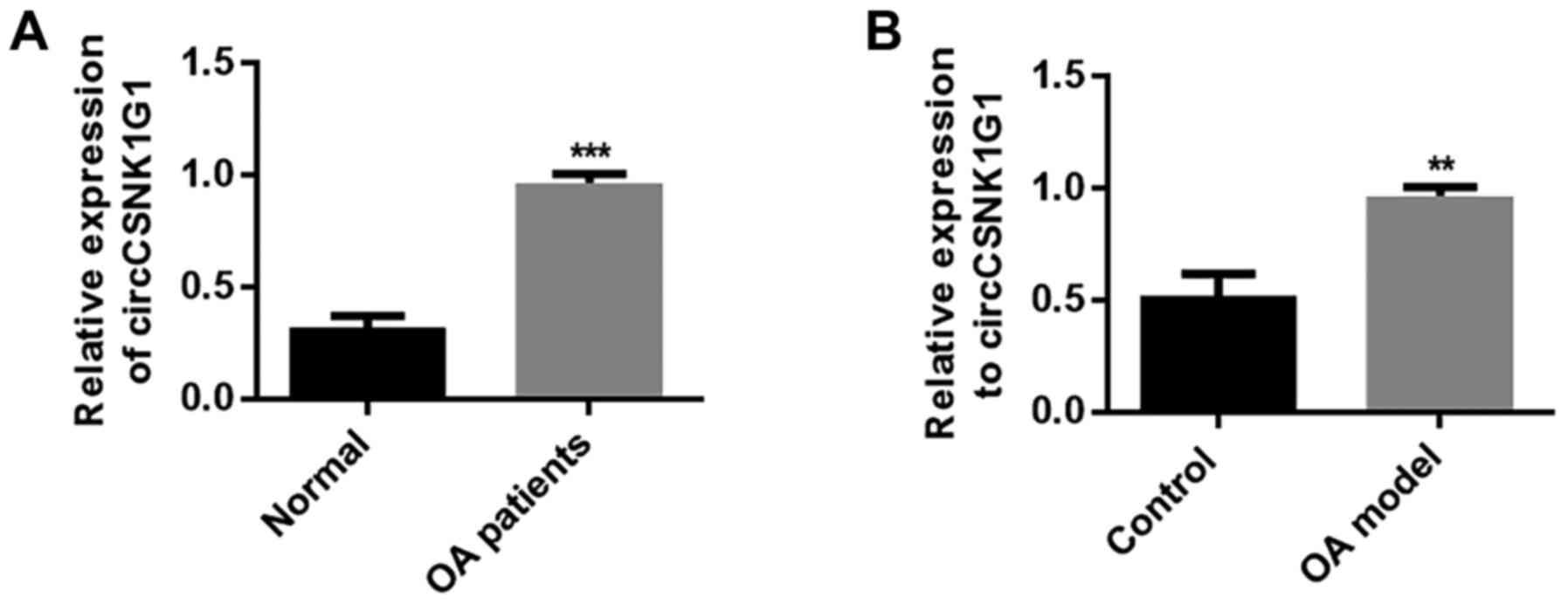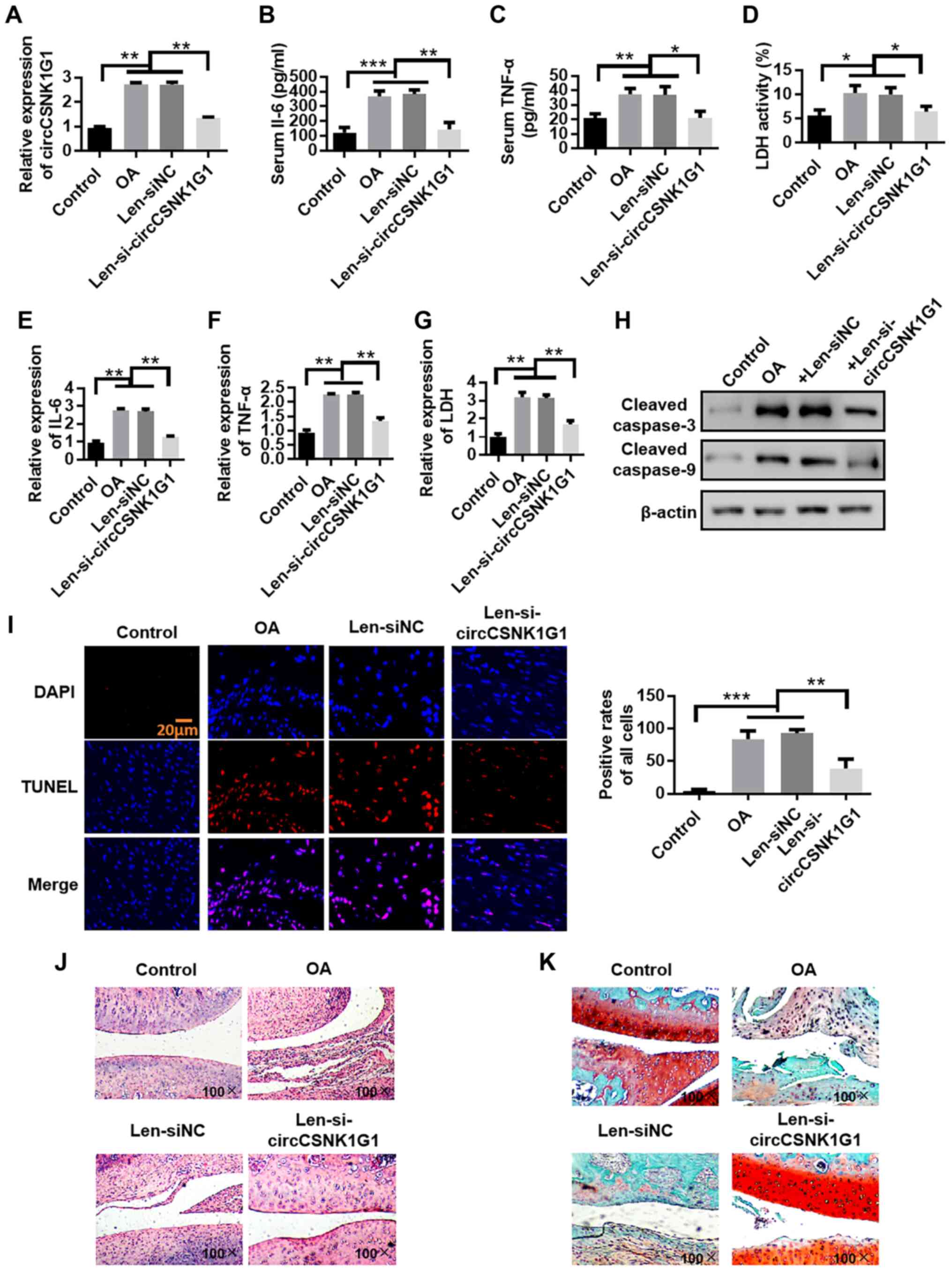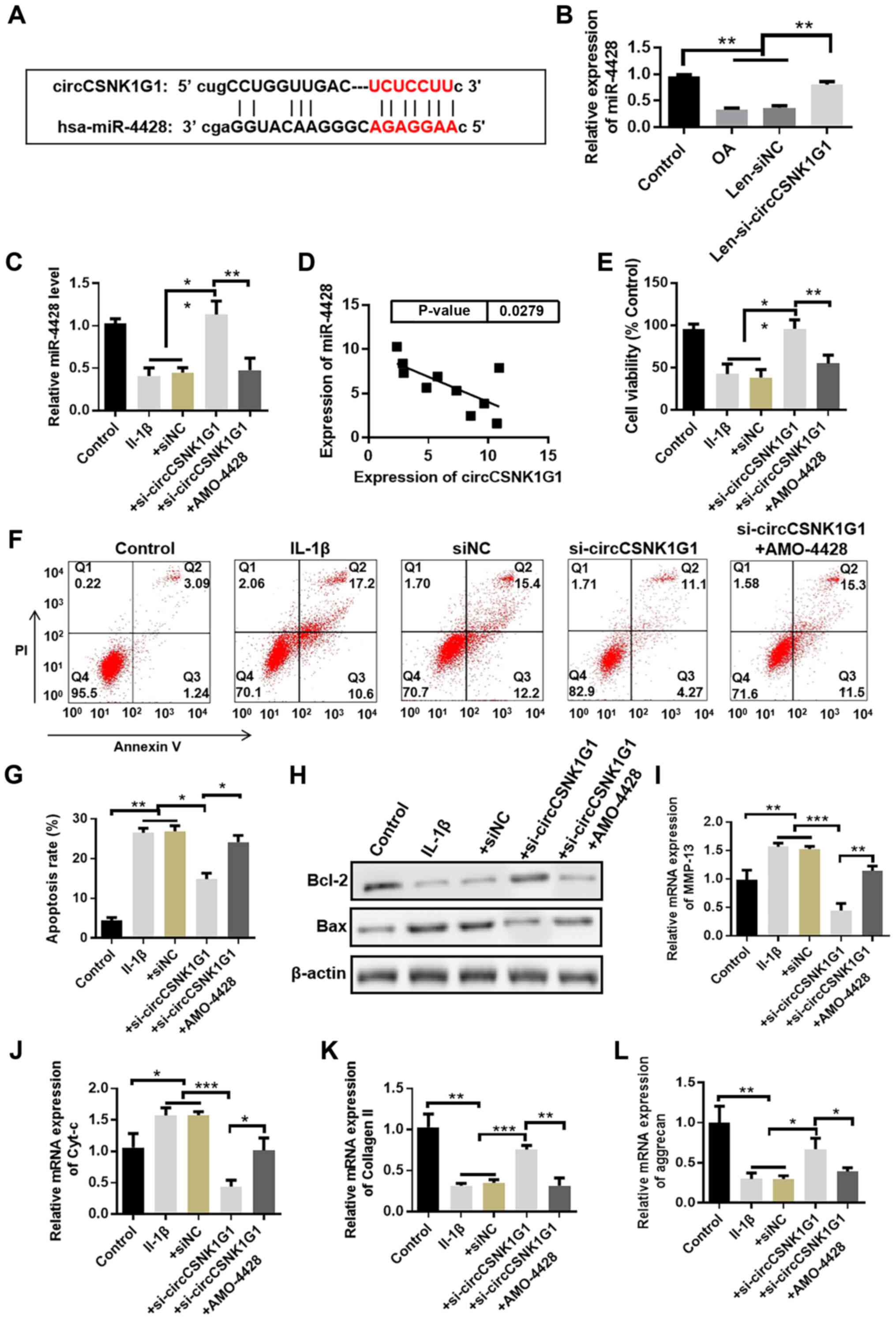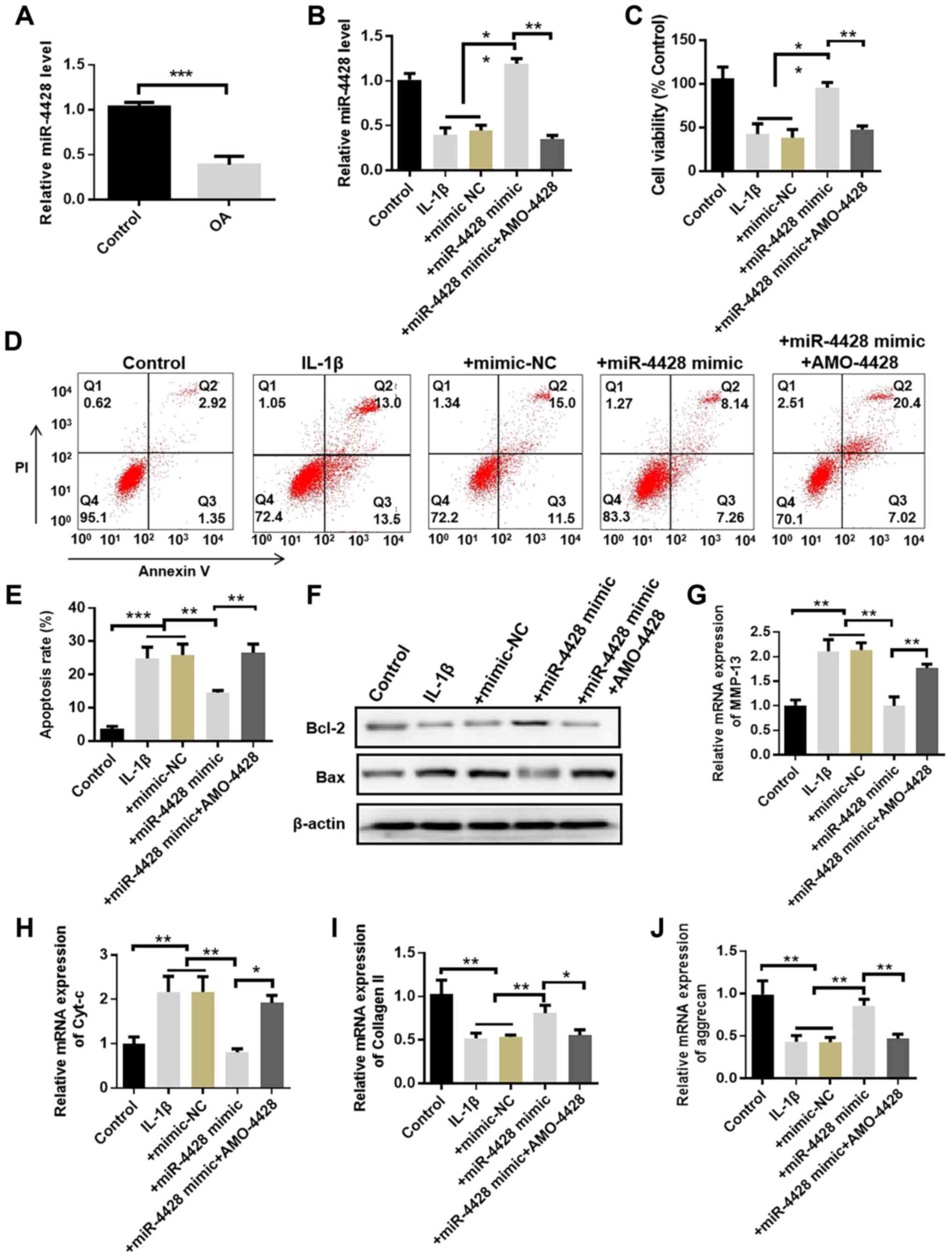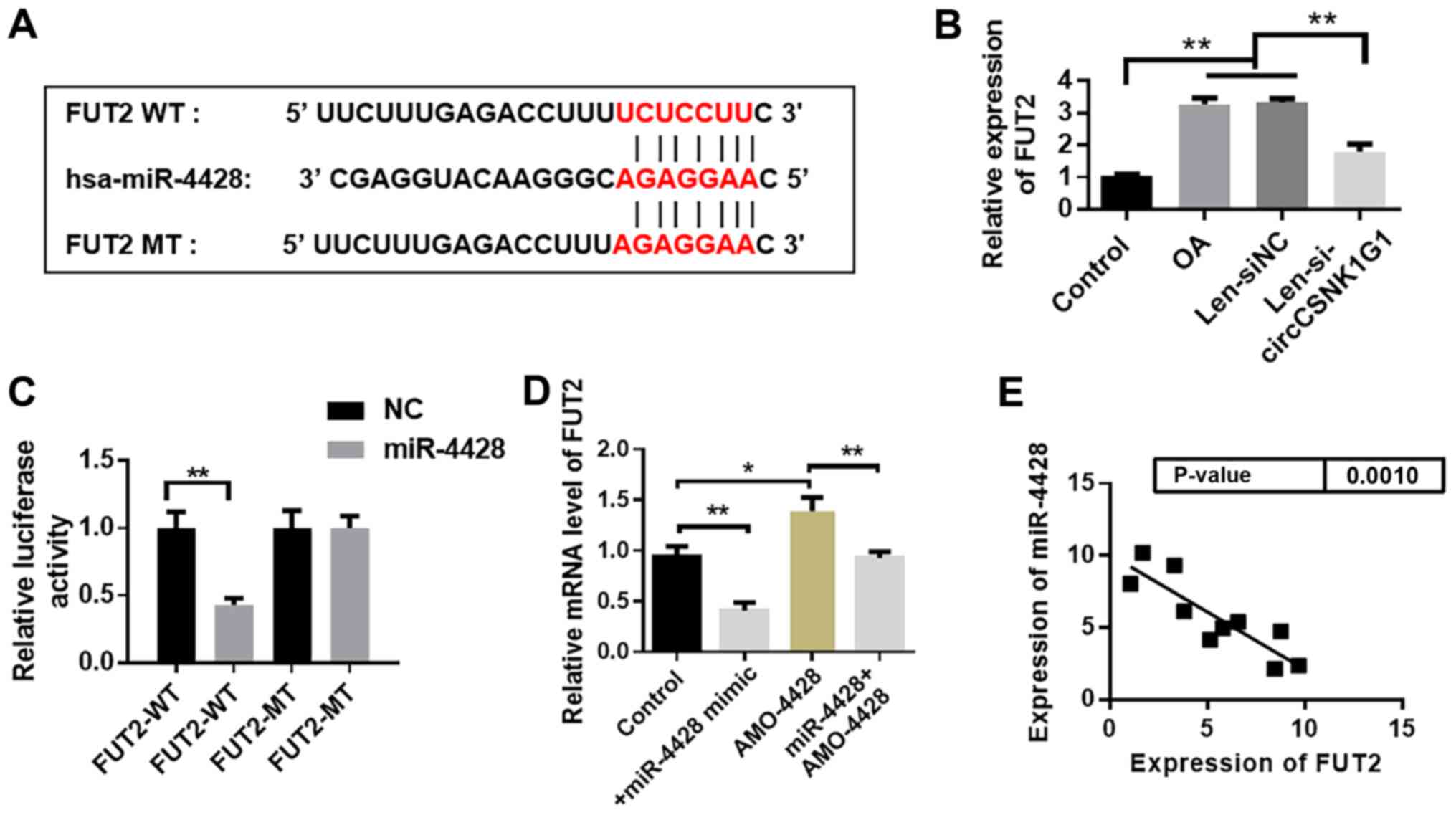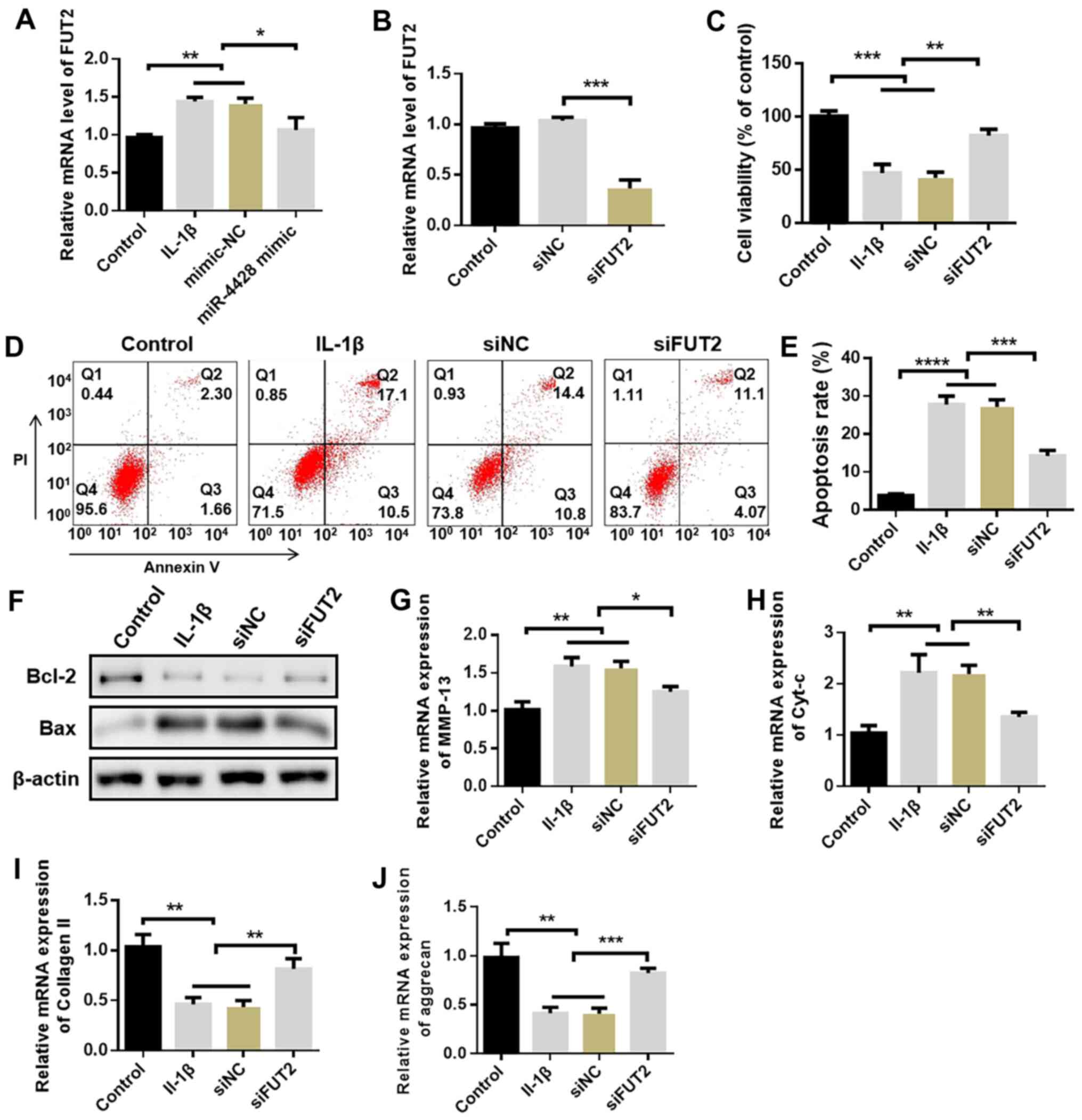|
1
|
Gonsalez SR, Cortês AL, Silva RCD, Lowe J,
Prieto MC and Silva Lara LD: Acute kidney injury overview: From
basic findings to new prevention and therapy strategies. Pharmacol
Ther. 200:1–12. 2019. View Article : Google Scholar : PubMed/NCBI
|
|
2
|
Peters E, Geraci S, Heemskerk S, Wilmer
MJ, Bilos A, Kraenzlin B, Gretz N, Pickkers P and Masereeuw R:
Alkaline phosphatase protects against renal inflammation through
dephosphorylation of lipopolysaccharide and adenosine triphosphate.
Br J Pharmacol. 172:4932–4945. 2015. View Article : Google Scholar : PubMed/NCBI
|
|
3
|
Zhang H, Chen MK, Li K, Hu C, Lu MH and
Situ J: Eupafolin nanoparticle improves acute renal injury induced
by LPS through inhibiting ROS and inflammation. Biomed
Pharmacother. 85:704–711. 2017. View Article : Google Scholar
|
|
4
|
Liu X, Lu J, Liao Y, Liu S, Chen Y, He R,
Men L, Lu C, Chen Z, Li S, et al: Dihydroartemisinin attenuates
lipopolysaccharide-induced acute kidney injury by inhibiting
inflammation and oxidative stress. Biomed Pharmacother.
117:1090702019. View Article : Google Scholar : PubMed/NCBI
|
|
5
|
Liu Q, Chen Y, Shen C, Xiao Y, Wang Y, Liu
Z and Liu X: Chicoric acid supplementation prevents systemic
inflammation-induced memory impairment and amyloidogenesis via
inhibition of NF-κB. FASEB J. 31:1494–1507. 2017. View Article : Google Scholar
|
|
6
|
Rabb H, Griffin MD, McKay DB, Swaminathan
S, Pickkers P, Rosner MH and Kellum JA: Inflammation in AKI:
Current understanding, key questions, and knowledge gaps. J Am Soc
Nephrol. 27:371–379. 2016. View Article : Google Scholar :
|
|
7
|
Li HD, Meng XM, Huang C, Zhang L, Lv XW
and Li J: Application of herbal traditional Chinese medicine in the
treatment of acute kidney injury. Front Pharmacol. 10:3762019.
View Article : Google Scholar : PubMed/NCBI
|
|
8
|
Islam MS, Miao L, Yu H, Han Z and Sun H:
Ethanol extract of Illicium henryi attenuates LPS-induced acute
kidney injury in mice via regulating inflammation and oxidative
stress. Nutrients. 11:14122019. View Article : Google Scholar :
|
|
9
|
Karsch-Völk M, Barrett B and Linde K:
Echinacea for preventing and treating the common cold. JAMA.
313:618–619. 2015. View Article : Google Scholar : PubMed/NCBI
|
|
10
|
Tubaro A, Tragni E, Del Negro P, Galli CL
and Della Loggia R: Anti-inflammation activity of a polysaccharidic
fraction of Echinacea angustifolia. J Pharm Pharmacol. 39:567–569.
1987. View Article : Google Scholar : PubMed/NCBI
|
|
11
|
Sharifi-Rad M, Mnayer D, Morais-Braga MFB,
Carneiro JNP, Bezerra CF, Coutinho HDM, Salehi B, Martorell M, Del
Mar Contreras M, Soltani-Nejad A, et al: Echinacea plants as
anti-oxidant and antibacterial agents: From traditional medicine to
biotechnological applications. Phytother Res. 32:1653–1663. 2018.
View Article : Google Scholar : PubMed/NCBI
|
|
12
|
Hall C III: Echinacea as a functional food
ingredient. Adv Food Nutr Res. 47:113–173. 2003. View Article : Google Scholar : PubMed/NCBI
|
|
13
|
Oláh A, Szabó-Papp J, Soeberdt M, Knie U,
Dähnhardt-Pfeiffer S, Abels C and Bíró T: Echinacea
purpurea-derived alkylamides exhibit potent anti-inflammatory
effects and alleviate clinical symptoms of atopic eczema. J
Dermatol Sci. 88:67–77. 2017. View Article : Google Scholar : PubMed/NCBI
|
|
14
|
Ghaemi A, Soleimanjahi H, Gill P, Arefian
E, Soudi S and Hassan Z: Echinacea purpurea polysaccharide reduces
the latency rate in herpes simplex virus type-1 infections.
Intervirology. 52:29–34. 2009. View Article : Google Scholar : PubMed/NCBI
|
|
15
|
Hudson JB: Applications of the
phytomedicine Echinacea purpurea (Purple Coneflower) in infectious
diseases. J Biomed Biotechnol. 2012:7698962012. View Article : Google Scholar
|
|
16
|
Yang G, Li K, Liu C, Peng P, Bai M, Sun J,
Li Q, Yang Z, Yang Y and Wu H: A comparison of the
immunostimulatory effects of polysaccharides from tetraploid and
diploid Echinacea purpurea. Biomed Res Int. 2018:86285312018.
View Article : Google Scholar :
|
|
17
|
Aarland RC, Bañuelos-Hernández AE,
Fragoso-Serrano M, Sierra-Palacios ED, Díaz de León-Sánchez F,
Pérez-Flores LJ, Rivera-Cabrera F and Mendoza-Espinoza JA: Studies
on phytochemical, antioxidant, anti-inflammatory, hypoglycaemic and
antiproliferative activities of Echinacea purpurea and Echinacea
angustifolia extracts. Pharm Biol. 55:649–656. 2017. View Article : Google Scholar
|
|
18
|
Kim EK and Choi EJ: Compromised MAPK
signaling in human disease: An update. Arch Toxicol. 89:867–882.
2015. View Article : Google Scholar : PubMed/NCBI
|
|
19
|
Santulli P, Marcellin L, Tosti C,
Chouzenoux S, Cerles O, Borghese B, Batteux F and Chapron C: MAP
kinases and the inflammatory signaling cascade as targets for the
treatment of endometriosis? Expert Opin Ther Targets. 19:1465–1483.
2015. View Article : Google Scholar : PubMed/NCBI
|
|
20
|
Xie P, Horio F, Fujii I, Zhao J, Shinohara
M and Matsukura M: A novel polysaccharide derived from algae
extract inhibits cancer progression via JNK, not via the p38 MAPK
signaling pathway. Int J Oncol. 52:1380–1390. 2018.PubMed/NCBI
|
|
21
|
Sherif IO, Al-Mutabagani LA, Alnakhli AM,
Sobh MA and Mohammed HE: Renoprotective effects of angiotensin
receptor blocker and stem cells in acute kidney injury: Involvement
of inflammatory and apoptotic markers. Exp Biol Med (Maywood).
240:1572–1579. 2015. View Article : Google Scholar
|
|
22
|
Sahu BD, Mahesh Kumar J and Sistla R:
Baicalein, a bioflavonoid, prevents cisplatin-induced acute kidney
injury by up-regulating antioxidant defenses and down-regulating
the MAPKs and NF-κB pathways. PLoS One. 10:e01341392015. View Article : Google Scholar
|
|
23
|
Han C, Sun T, Liu Y, Fan G, Zhang W and
Liu C: Protective effect of Polygonatum sibiricum polysaccharides
on gentamicin-induced acute kidney injury in rats via inhibiting
p38 MAPK/ATF2 pathway. Int J Biol Macromol. 151:595–601. 2020.
View Article : Google Scholar : PubMed/NCBI
|
|
24
|
Li G, Fu J, Zhao Y, Ji K, Luan T and Zang
B: Alpha-lipoic acid exerts anti-inflammatory effects on
lipopolysaccharide- stimulated rat mesangial cells via inhibition
of nuclear factor kappa B (NF-κB) signaling pathway. Inflammation.
38:510–519. 2015. View Article : Google Scholar
|
|
25
|
Yuan J, Hou K, Yao Y, Du Z, Lu C, Yuan Q
and Gao X: Gold clusters attenuate inflammation in rat mesangial
cells via inhibiting the activation of NF-κB pathway. Nanomaterials
(Basel). 10:–712. 2020. View Article : Google Scholar
|
|
26
|
Hou R, Xu T, Li Q, Yang F, Wang C, Huang T
and Hao Z: Polysaccharide from Echinacea purpurea reduces the
oxidant stress in vitro and in vivo. Int J Biol Macromol.
149:41–50. 2020. View Article : Google Scholar : PubMed/NCBI
|
|
27
|
Beckert H, Meyer-Martin H, Buhl R, Taube C
and Reuter S: The canonical but not the noncanonical Wnt pathway
inhibits the development of allergic airway disease. J Immunol.
201:1855–1864. 2018. View Article : Google Scholar : PubMed/NCBI
|
|
28
|
Burmeister DM, Gómez BI and Dubick MA:
Molecular mechanisms of trauma-induced acute kidney injury:
Inflammatory and metabolic insights from animal models. Biochim
Biophys Acta Mol Basis Dis. 1863:2661–2671. 2017. View Article : Google Scholar : PubMed/NCBI
|
|
29
|
Teo SH and Endre ZH: Biomarkers in acute
kidney injury (AKI). Best Pract Res Clin Anaesthesiol. 31:331–344.
2017. View Article : Google Scholar : PubMed/NCBI
|
|
30
|
Bettaieb A, Koike S, Chahed S, Zhao Y,
Bachaalany S, Hashoush N, Graham J, Fatima H, Havel PJ, Gruzdev A,
et al: Podocyte-specific soluble epoxide hydrolase deficiency in
mice attenuates acute kidney injury. FEBS J. 284:1970–1986. 2017.
View Article : Google Scholar : PubMed/NCBI
|
|
31
|
Clark A, Neyra JA, Madni T, Imran J,
Phelan H, Arnoldo B and Wolf SE: Acute kidney injury after burn.
Burns. 43:898–908. 2017. View Article : Google Scholar : PubMed/NCBI
|
|
32
|
Gan Y, Tao S, Cao D, Xie H and Zeng Q:
Protection of resveratrol on acute kidney injury in septic rats.
Human Exp Toxicol. 36:1015–1022. 2017. View Article : Google Scholar
|
|
33
|
Chen Y, Jin S, Teng X, Hu Z, Zhang Z, Qiu
X, Tian D and Wu Y: Hydrogen sulfide attenuates LPS-induced acute
kidney injury by inhibiting inflammation and oxidative stress. Oxid
Med Cell Longev. 2018:67172122018.PubMed/NCBI
|
|
34
|
Xu C, Chang A, Hack BK, Eadon MT, Alper SL
and Cunningham PN: TNF-mediated damage to glomerular endothelium is
an important determinant of acute kidney injury in sepsis. Kidney
Int. 85:72–81. 2014. View Article : Google Scholar
|
|
35
|
Sharma M, Naura AS and Singla SK:
Modulatory effect of 4-phenyl butyric acid on hyperoxaluria-induced
renal injury and inflammation. Mol Cell Biochem. 451:185–196. 2019.
View Article : Google Scholar
|
|
36
|
Yu Y, Li M, Su N, Zhang Z, Zhao H, Yu H
and Xu Y: Honokiol protects against renal ischemia/reperfusion
injury via the suppression of oxidative stress, iNOS, inflammation
and STAT3 in rats. Mol Med Rep. 13:1353–1360. 2016. View Article : Google Scholar
|
|
37
|
Liu Y, Fu X, Gou L, Li S, Lan N, Zheng Y
and Yin X: L-citrulline protects against glycerol-induced acute
renal failure in rats. Ren Fail. 35:367–373. 2013. View Article : Google Scholar : PubMed/NCBI
|
|
38
|
Zhao H, Liu Z, Shen H, Jin S and Zhang S:
Glycyrrhizic acid pretreatment prevents sepsis-induced acute kidney
injury via suppressing inflammation, apoptosis and oxidative
stress. Eur J Pharmacol. 781:92–99. 2016. View Article : Google Scholar : PubMed/NCBI
|
|
39
|
Hwang HS, Yang KJ, Park KC, Choi HS, Kim
SH, Hong SY, Jeon BH, Chang YK, Park CW, Kim SY, et al:
Pretreatment with paricalcitol attenuates inflammation in
ischemia-reperfusion injury via the up-regulation of
cyclooxygenase-2 and prostaglandin E2. Nephrol Dial Transplant.
28:1156–1166. 2013. View Article : Google Scholar
|
|
40
|
Leng H, Pu L, Xu L, Shi X, Ji J and Chen
K: Effects of aloe polysaccharide, a polysaccharide extracted from
Aloe vera, on TNF-α-induced HaCaT cell proliferation and the
under-lying mechanism in psoriasis. Mol Med Rep. 18:3537–3543.
2018.PubMed/NCBI
|
|
41
|
Dogan Z, Ergul B, Sarikaya M, Filik L,
Gonultaş MA, Hucumenoglu S and Can M: The protective effect of
Echinacea spp. (Echinacea angustifolia and Echinacea purpurea) in a
rat colitis model induced by acetic acid. Pak J Pharm Sci.
27:1827–1835. 2014.PubMed/NCBI
|
|
42
|
Mirzoyan K, Denis C, Casemayou A, Gilet M,
Marsal D, Goudounéche D, Faguer S, Bascands JL, Schanstra JP and
Saulnier-Blache JS: Lysophosphatidic acid protects against
endotoxin-induced acute kidney injury. Inflammation. 40:1707–1716.
2017. View Article : Google Scholar : PubMed/NCBI
|
|
43
|
Su S, Ding X, Fu L and Hou Y: Structural
characterization and immune regulation of a novel polysaccharide
from maerkang Lactarius deliciosus gray. Int J Mol Med. 44:713–724.
2019.PubMed/NCBI
|
|
44
|
Tomsa AM, Alexa AL, Junie ML, Rachisan AL
and Ciumarnean L: Oxidative stress as a potential target in acute
kidney injury. PeerJ. 7:e80462019. View Article : Google Scholar : PubMed/NCBI
|
|
45
|
Rousta AM, Mirahmadi SM, Shahmohammadi A,
Nourabadi D, Khajevand-Khazaei MR, Baluchnejadmojarad T and Roghani
M: Protective effect of sesamin in lipopolysaccharide-induced mouse
model of acute kidney injury via attenuation of oxidative stress,
inflammation, and apoptosis. Immunopharmacol Immunotoxicol.
40:423–429. 2018. View Article : Google Scholar : PubMed/NCBI
|
|
46
|
Chatterjee A and Chatterji U: All-trans
retinoic acid ameliorates arsenic-induced oxidative stress and
apoptosis in the rat uterus by modulating MAPK signaling proteins.
J Cell Biochem. 118:3796–3809. 2017. View Article : Google Scholar : PubMed/NCBI
|
|
47
|
Chenxu G, Minxuan X, Yuting Q, Tingting G,
Jinxiao L, Mingxing W, Sujun W, Yongjie M, Deshuai L, Qiang L, et
al: iRhom2 loss alleviates renal injury in long-term PM2.5-exposed
mice by suppression of inflammation and oxidative stress. Redox
Biol. 19:147–157. 2018. View Article : Google Scholar : PubMed/NCBI
|
|
48
|
Sun Q, Xin F, Wen X, Lu C, Chen R and Ruan
G: Protective effects of different kinds of filtered water on
hypertensive mouse by suppressing oxidative stress and
inflammation. Oxid Med Cell Longev. 2018:29173872018. View Article : Google Scholar
|
|
49
|
Sahu BD, Kuncha M, Sindhura GJ and Sistla
R: Hesperidin attenuates cisplatin-induced acute renal injury by
decreasing oxidative stress, inflammation and DNA damage.
Phytomedicine. 20:453–460. 2013. View Article : Google Scholar : PubMed/NCBI
|
|
50
|
Jia P, Wu X, Pan T, Xu S, Hu J and Ding X:
Uncoupling protein 1 inhibits mitochondrial reactive oxygen species
generation and alleviates acute kidney injury. EBioMedicine.
49:331–340. 2019. View Article : Google Scholar : PubMed/NCBI
|
|
51
|
Amos LA, Ma FY, Tesch GH, Liles JT,
Breckenridge D, Nikolic-Patersn DJ and Han Y: ASK1 inhibitor
treatment suppresses p38/JNK signalling with reduced kidney
inflammation and fibrosis in rat crescentic glomerulonephritis. J
Cell Mol Med. 22:4522–4533. 2018. View Article : Google Scholar : PubMed/NCBI
|
|
52
|
Ma Y, Zhao Q, Shao Y, Cao MZ, Zhao M and
Wang D: Melatonin inhibits the inflammation and apoptosis in rats
with diabetic retinopathy via MAPK pathway. Eur Rev Med Pharmacol
Sci. 23(Suppl 3): S1–S8. 2019.
|
|
53
|
Zhu L, Yi X, Zhao J, Yuan Z, Wen L,
Pozniak B, Obminska-Mrukowicz B, Tian Y, Tan Z, Wu J and Yi J:
Betulinic acid attenuates dexamethasone-induced oxidative damage
through the JNK-P38 MAPK signaling pathway in mice. Biomed
Pharmacother. 103:499–508. 2018. View Article : Google Scholar : PubMed/NCBI
|
|
54
|
Xing Y, Yang SD, Wang MM, Dong F, Feng YS
and Zhang F: Electroacupuncture alleviated neuronal apoptosis
following ischemic stroke in rats via midkine and ERK/JNK/p38
signaling pathway. J Mol Neurosci. 66:26–36. 2018. View Article : Google Scholar : PubMed/NCBI
|
|
55
|
Chen S, Zhao L, Sherchan P, Ding Y, Yu J,
Nowrangi D, Tang J, Xia Y and Zhang JH: Activation of melanocortin
receptor 4 with RO27-3225 attenuates neuroinflammation through
AMPK/JNK/p38 MAPK pathway after intracerebral hemorrhage in mice. J
Neuroinflammation. 15:1062018. View Article : Google Scholar : PubMed/NCBI
|
|
56
|
Gupta KK, Donahue DL, Sandoval-Cooper MJ,
Castellino FJ and Ploplis VA: Abrogation of plasminogen activator
inhibitor-1-vitronectin interaction ameliorates acute kidney injury
in murine endotoxemia. PLoS One. 10:e01207282015. View Article : Google Scholar : PubMed/NCBI
|
|
57
|
Shen WC, Liang CJ, Huang TM, Liu CW, Wang
SH, Young GH, Tsai JS, Tseng YC, Peng YS, Wu VC and Chen YL:
Indoxyl sulfate enhances IL-1β-induced E-selectin expression in
endothelial cells in acute kidney injury by the ROS/MAPKs/NFκB/AP-1
pathway. Arch Toxicol. 90:2779–2792. 2016. View Article : Google Scholar
|
|
58
|
Chen X, Wei W, Li Y, Huang J and Ci X:
Hesperetin relieves cisplatin-induced acute kidney injury by
mitigating oxidative stress, inflammation and apoptosis. Chem Biol
Interact. 308:269–278. 2019. View Article : Google Scholar : PubMed/NCBI
|
|
59
|
Nitulescu GM, Van De Venter M, Nitulescu
G, Ungurianu A, Juzenas P, Peng Q, Olaru OT, Gradinaru D, Tsatsakis
A, Tsoukalas D, et al: The Akt pathway in oncology therapy and
beyond (Review). Int J Oncol. 53:2319–2331. 2018.PubMed/NCBI
|
|
60
|
Tanaka M, Kishimoto Y, Sasaki M, Sato A,
Kamiya T, Kondo K and Iida K: Terminalia bellirica (Gaertn.) Roxb.
extract and gallic acid attenuate LPS-induced inflammation and
oxidative stress via MAPK/NF-κB and Akt/AMPK/Nrf2 pathways. Oxid
Med Cell Longev. 2018:93643642018. View Article : Google Scholar
|
|
61
|
Zhao Y, Feng X, Li B, Sha J, Wang C, Yang
T, Cui H and Fan H: Dexmedetomidine protects against
lipopolysaccharide-induced acute kidney injury by enhancing
autophagy through inhibition of the PI3K/AKT/mTOR pathway. Front
Pharmacol. 11:1282020. View Article : Google Scholar : PubMed/NCBI
|
|
62
|
Fast DJ, Balles JA, Scholten JD, Mulder T
and Rana J: Echinacea purpurea root extract inhibits TNF release in
response to Pam3Csk4 in a phosphatidylinositol-3-kinase dependent
manner. Cell Immunol. 297:94–99. 2015. View Article : Google Scholar : PubMed/NCBI
|
|
63
|
Han QB: Critical problems stalling
progress in natural bioactive polysaccharide research and
development. J Agric Food Chem. 66:4581–4583. 2018. View Article : Google Scholar : PubMed/NCBI
|
|
64
|
Yu M, Xiao B, Hao X, Tan J, Gu J, Wang G,
Wang W and Zhang Y: Pumpkin polysaccharide preparation, stimulated
gastrointestinal digestion, and in vivo biodistribution. Int J Biol
Macromol. 141:1293–1303. 2019. View Article : Google Scholar : PubMed/NCBI
|
|
65
|
Liu H, Ma L and Wang Q: Possible metabolic
pathway of a novel bioactive polysaccharide extracted from
Dendrobium aphyllum: An in vivo study. J Food Sci. 84:1216–1223.
2019. View Article : Google Scholar : PubMed/NCBI
|















